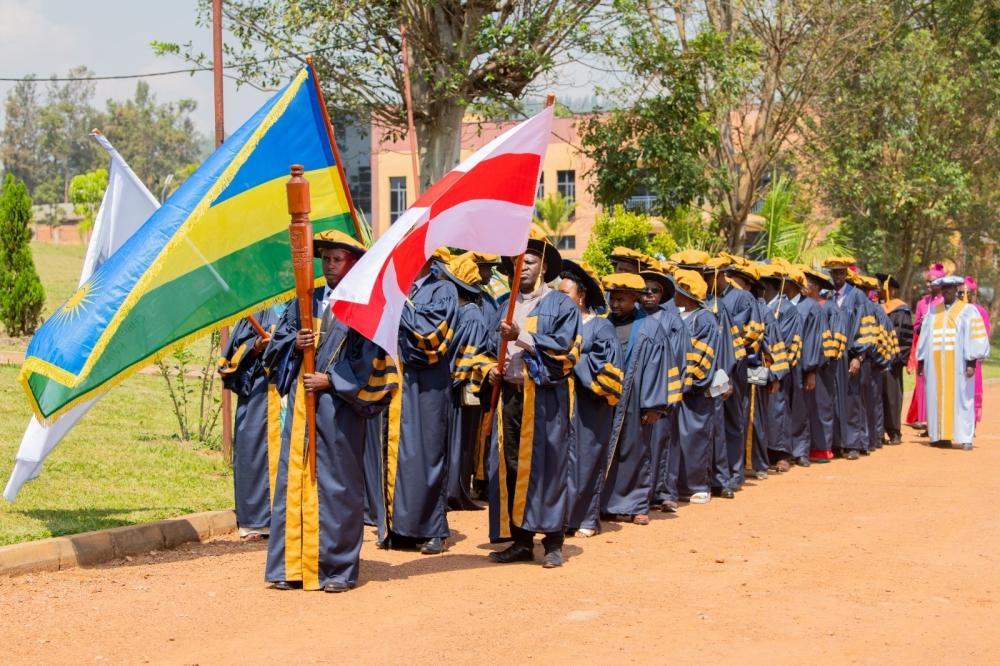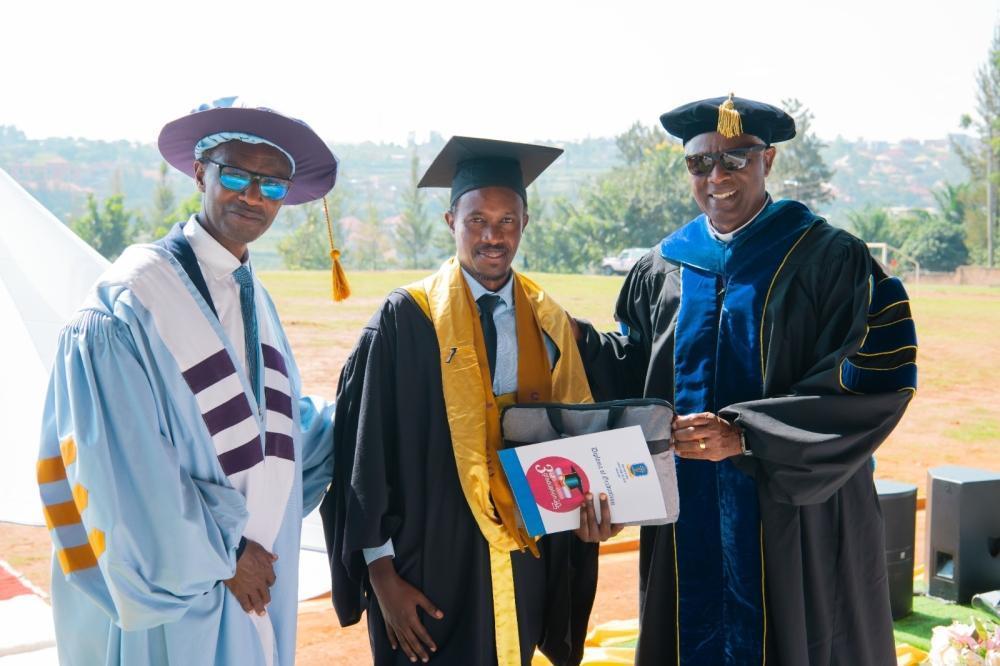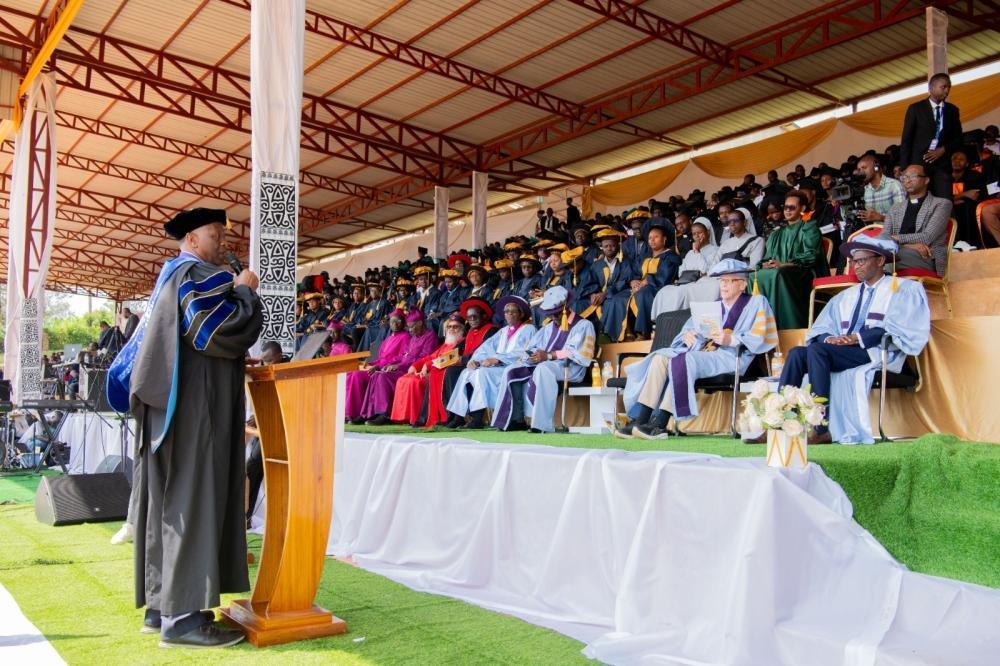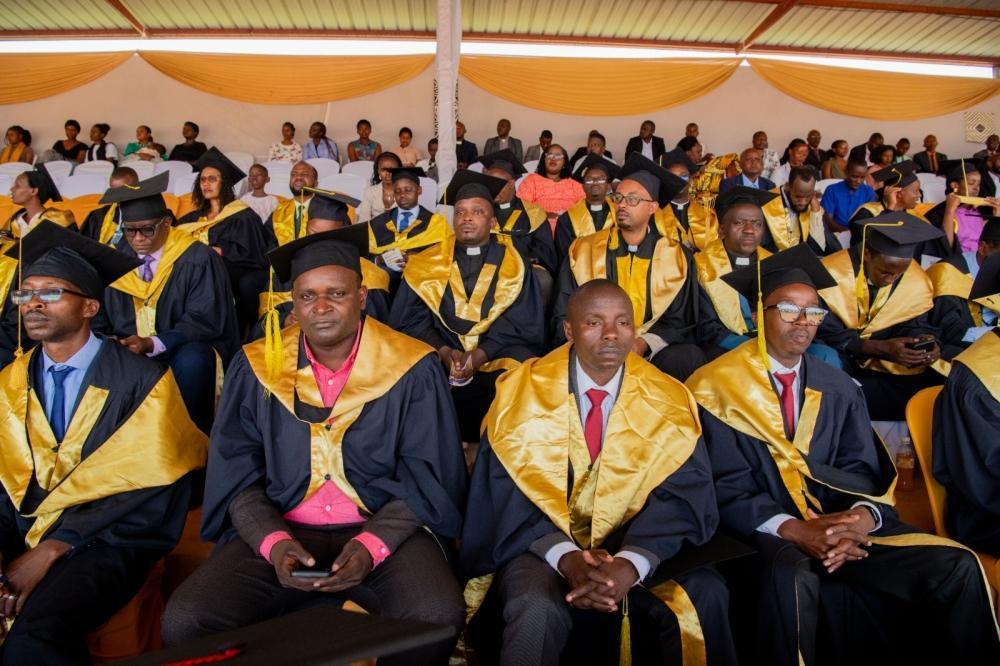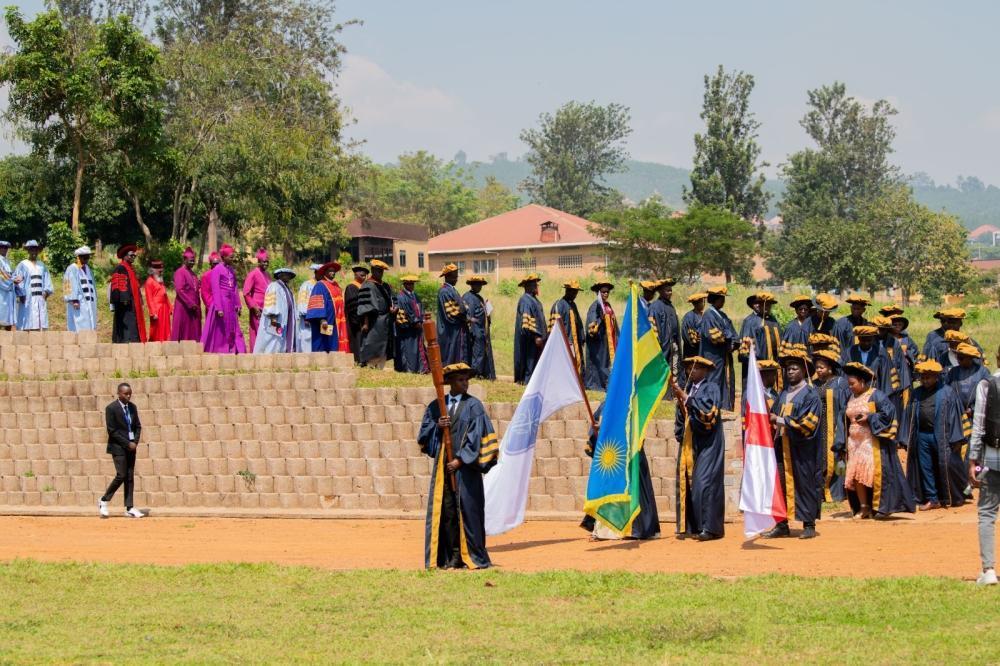Africa-Press – Rwanda. Faith leaders, including those whose churches were previously closed for failing to meet new requirements such as holding a bachelor’s degree in theology, completed their courses, expressing a strong interest in pursuing even higher levels of theological education.
Theological courses helped them recognise flaws in earlier preaching, including misinterpretation of scriptures and lack of cultural awareness, according to the graduates from East African Christian College who completed their studies on June 27.
One of them is Olivier Vuguziga, a pastor from Nyakinama parish in Shyira Diocese of the Anglican Church, whose church was closed in August 2024, when he had begun postgraduate studies in theology.
“We are now ready and just waiting for the green light to reopen,” Vuguziga said in an interview with The New Times.
“Before, many pastors would quote verses without understanding when they were said, to whom, and under what circumstances and context. That has changed.”
He said many preachers had been more focused on encouraging church members to contribute everything to the church, neglecting personal and community development.
“Pastors should not only teach spiritual matters but also promote self-reliance. I have learnt how to identify my audience and tailor the message accordingly. I also hope to continue into master’s studies,” he added.
Jean Nkurunziza, a deacon at a church located in Gasabo District, also returned to school to get a theology degree in addition to a degree in Economics and Management.
“My passion for preaching and the Rwanda Governance Board (RGB) requirement led me to theology. I started postgraduate studies in September 2023,” Nkurunziza said, describing the courses as transformative.
“Church governance taught us leadership and how to apply Christianity in our daily life. Christian ethics helped us align our lives with faith.”
“Theology taught us that a church member’s life is no different from that of any other Rwandan. Lessons like counselling and pastoral care are essential for unity and hope,” he said.
Loana Pamela Uwase, another recent graduate, said she enrolled to meet RGB’s criteria for becoming a pastor.
“Today, cultures are mixed. We must preach with awareness of whom we’re speaking to,.” Uwase said. “Theology taught us how to preach and to whom. People come from diverse backgrounds, and now I have the skills to engage them more meaningfully.”
Theoneste Ndikumana, the Head of General Higher Education Quality Standards at the Higher Education Council (HEC), urged the college to expand.
“We encourage the school to start a master’s programme. Once they submit their proposal, we’re ready to support them. The lack of formal training among some pastors remains a challenge,” Ndikumana said.
Laurent Mbanda, the Archbishop of the Anglican Church of Rwanda and Vice Chairman of the Rwanda Inter-religious Council, said qualifications would improve church leadership.
“We’re grateful that more of our faith leaders are meeting these requirements,” Mbanda said.
Papias Musafiri Malimba, Principal of East African Christian College, confirmed growing demand for advanced theological education.
“There is a clear need for master’s programmes in theology. At present, only one university offers a bachelor’s in the field,” he said. “We’ve been approached by many who wish to continue, and we’re working on it.”
He said three intakes have so far completed bachelor’s and postgraduate diploma programmes at the college.
“We are also ensuring our students gain technology skills to match the pace of global change,” he added.
Among the 246 graduates from East African Christian College, 142 were from the Faculty of Theology and Religion.
Of these, 99 completed a Postgraduate Diploma in Theology, including 15 women, while 43 earned a Bachelor of Arts with Honours in Theology, including 7 women.
For More News And Analysis About Rwanda Follow Africa-Press

